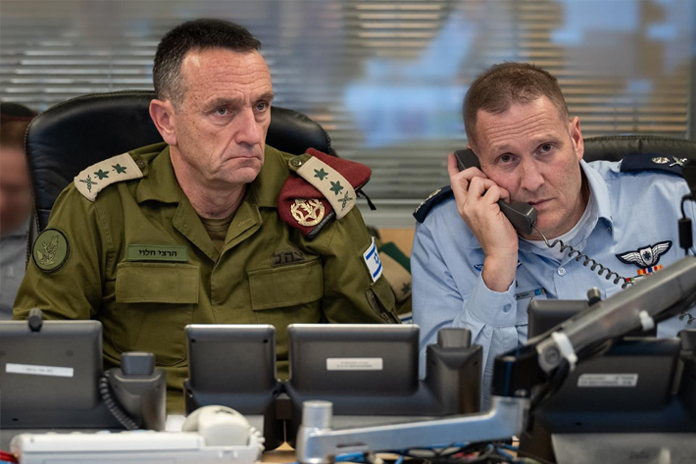
The Israel Defense Forces (IDF) carried out strikes against military targets in Iran, including in the capital Tehran early Saturday morning.
Then Israel subsequently announced that it had ended its retaliation on Iran and also warned Iran against further escalation.
The IDF said the strikes were in response to “months of continuous attacks from Iran.” Israel had long vowed to respond to Iran’s missile attack on its territory on 1 October.
The direct Iranian retaliation had followed the killing of the leader of Hezbollah, Hassan Nasrallah in late September in Lebanon. It also followed the killing of Hamas political leader Ismail Haniyeh, who was killed by an explosion in Tehran in July that Iranian officials blamed on Israel.
Iranian media on Saturday morning reported at least two waves of multiple explosions over more than two hours in the capital Tehran and at nearby military bases, playing down the attacks in initial reports and highlighting Iran’s air defences.
The region has been on edge awaiting Israel’s retaliation for a ballistic-missile barrage carried out by Iran on Oct. 1, in which an estimated 200 missiles were fired at Israel. That was Iran’s second direct attack on Israel in six months.
“In response to months of continuous attacks from the regime in Iran against the State of Israel – right now the Israel Defence Forces is conducting precise strikes on military targets in Iran,” Israel’s military said in a statement.
Israel has the right and duty to respond to attacks from Tehran and its proxies, which have included missile strikes launched from Iranian soil, the military said.
Targets did not include energy infrastructure or nuclear facilities, a U.S. official said.
U.S. President Joe Biden had warned that Washington, Israel’s main backer and supplier of arms, would not support a strike on Tehran’s nuclear sites and has said Israel should consider alternatives to attacking Iran’s oil fields.
IRAN PLAYS DOWN STRIKES
Iranian state TV quoted a military spokesman as saying the explosions heard in Tehran were linked “to air defence systems reacting to efforts by the Zionist regime (Israel) to attack three locations outside the city of Tehran.”
Anti-aircraft fire was being heard in central Teharan, state news agency IRNA reported.
The semi-official Iranian Fars news agency said several military bases in the west and southwest of Tehran had been targeted by Israel.
Iranian state media reported strong explosions that began around 2am local time (2230 GMT Friday), but played down the attack in initial reports, saying life continued as normal.
The Tasnim News Agency said Islamic Revolutionary Guard Corps bases that were attacked were not damaged.
State TV showed footage of Tehran’s Imam Khomeini international airport with arriving passengers getting off their flights.
Israel also targeted some military sites in Syria’s central and southern parts with airstrikes early on Saturday, Syrian state news agency SANA reported.
Syrian air defence forces intercepted missiles launched by Israel “from the direction of the Israeli-occupied Syrian Golan Heights and the Lebanese territories” and shot down some of them, SANA added.
Israel has not confirmed striking Syria.
Iranian authorities have repeatedly warned Israel against launching an attack, saying any strike on Iran would be met with stronger retaliation.
U.S. INFORMED AHEAD OF STRIKES
Israel said Prime Minister Benjamin Netanyahu and Defence Minister Yoav Gallant were closely following the operation at the military’s command and control center in Tel Aviv.
Gallant spoke to U.S. Defence Secretary Lloyd Austin shortly after Israel’s response began, a U.S. defense official said.
The United States was notified by Israel ahead of its strikes on targets in Iran but was not involved in the operation, a U.S. official told Reuters.
Fears that Iran and the U.S. would be drawn into a regional war have risen with Israel’s intensifying assault on Hezbollah since last month, including airstrikes on Beirut and a ground operation, as well as its year-old conflict in the Gaza Strip.
Even as it sought to convince Israel to calibrate its strikes on Iran to avoid escalation, the United States moved to reassure its closest ally in the Middle East that it would aid in its defense should Tehran decide to stage a counter-attack.
This included Biden’s decision to move the U.S. military’s THAAD anti-missile defenses to Israel, along with about 100 U.S. soldiers to operate them.
U.S. Secretary of State Antony Blinken said on Wednesday that Israel’s retaliation should not lead to greater escalation.
(with Agency inputs)









